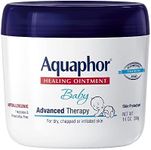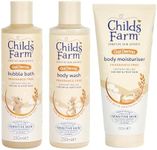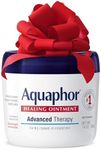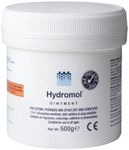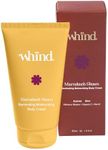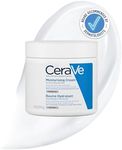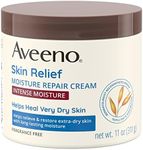Buying Guide for the Best Eczema Creams
Choosing the right eczema cream can make a significant difference in managing symptoms and improving skin health. Eczema creams are designed to soothe irritation, reduce inflammation, and provide moisture to dry, sensitive skin. When selecting an eczema cream, it's important to consider your specific skin needs, any allergies, and the severity of your eczema. Understanding the key specifications of eczema creams will help you make an informed decision that best suits your skin condition.Active IngredientsActive ingredients in eczema creams are crucial as they determine the cream's effectiveness in treating symptoms. Common active ingredients include hydrocortisone, which reduces inflammation, and colloidal oatmeal, which soothes irritation. Some creams may contain ceramides to help restore the skin barrier. When choosing a cream, consider your skin's sensitivity and any allergies you may have. If your eczema is mild, a cream with soothing ingredients like oatmeal may suffice, whereas more severe cases might require a cream with hydrocortisone.
Moisturizing PropertiesMoisturizing properties are essential in eczema creams as they help to hydrate dry skin and maintain the skin barrier. Look for creams that contain humectants like glycerin or hyaluronic acid, which attract moisture to the skin, and emollients like shea butter or petrolatum, which lock in moisture. If your skin is extremely dry, opt for a cream with rich emollients. For less severe dryness, a lighter cream with humectants may be sufficient.
Fragrance-FreeFragrance-free creams are important for individuals with eczema because fragrances can irritate sensitive skin and exacerbate symptoms. When selecting an eczema cream, it's advisable to choose one that is labeled as fragrance-free to minimize the risk of irritation. If you have very sensitive skin, this specification is particularly crucial to avoid any potential allergic reactions or worsening of eczema symptoms.
ConsistencyThe consistency of an eczema cream can affect how it feels on the skin and its absorption rate. Creams can range from light lotions to thick ointments. If you prefer a non-greasy feel, a lighter lotion might be suitable, whereas thicker ointments provide more intensive moisture and are better for very dry skin. Consider your personal preference and the severity of your eczema when choosing the consistency that works best for you.
PackagingPackaging can influence the ease of use and preservation of the cream's effectiveness. Tubes and pumps are generally more hygienic than jars, as they minimize exposure to air and contaminants. If you travel frequently or need to apply cream on-the-go, a tube or pump might be more convenient. Consider how often you use the cream and where you typically apply it to determine the most practical packaging for your needs.

